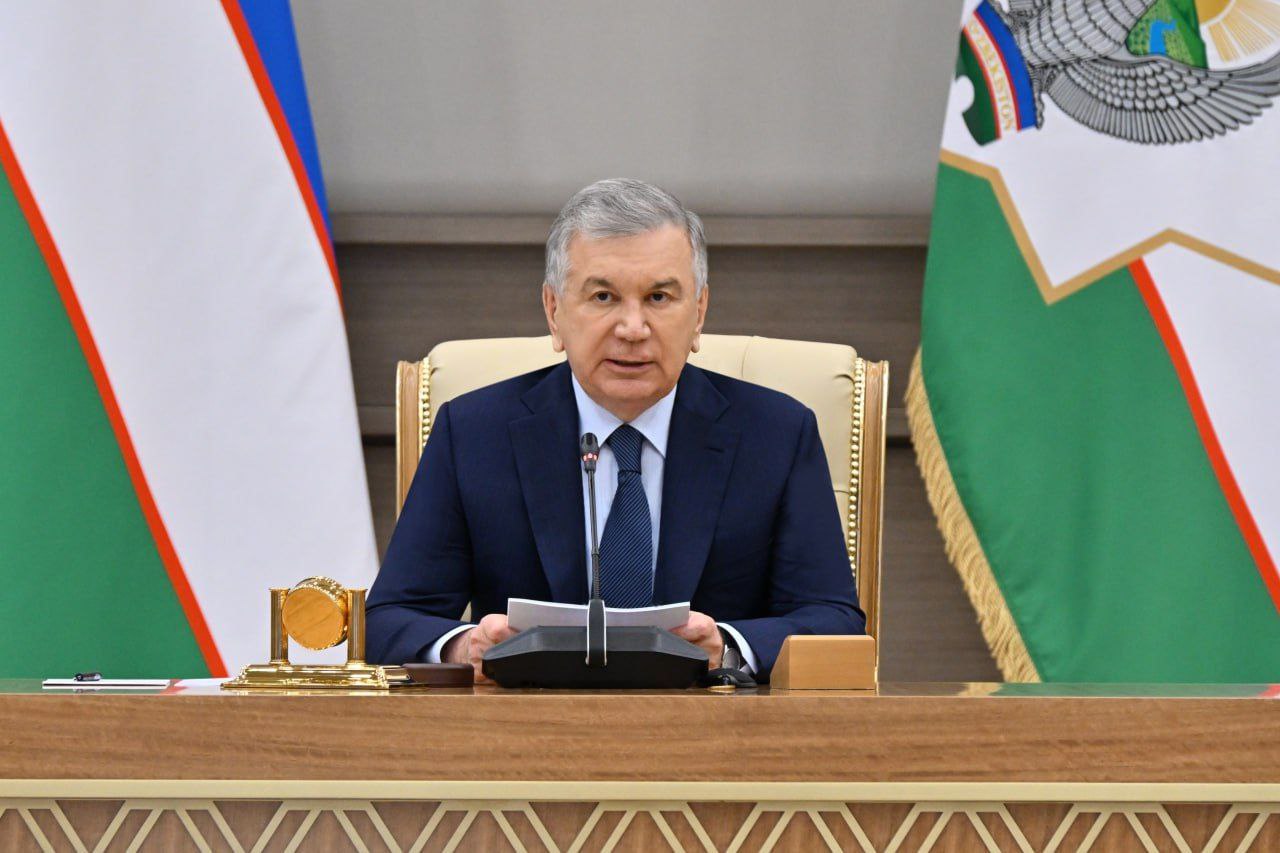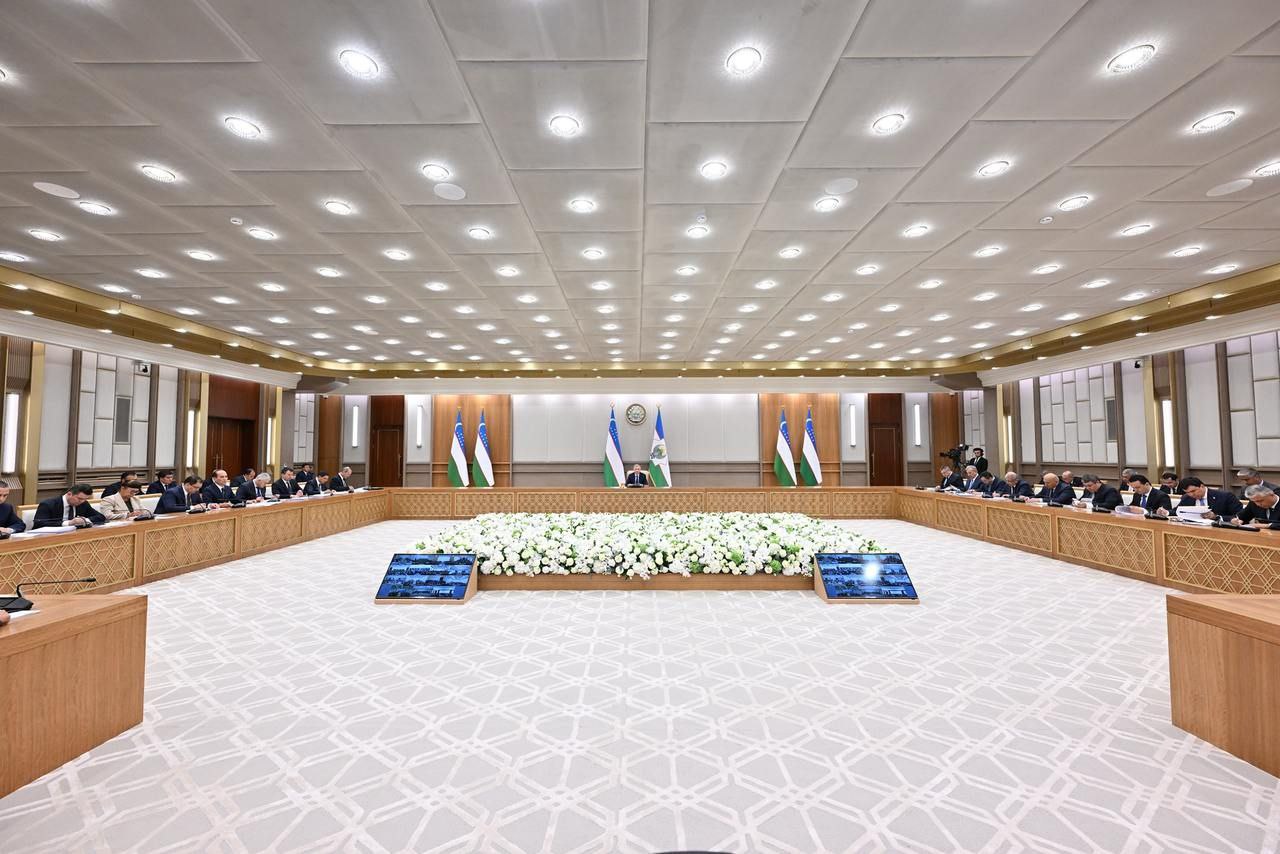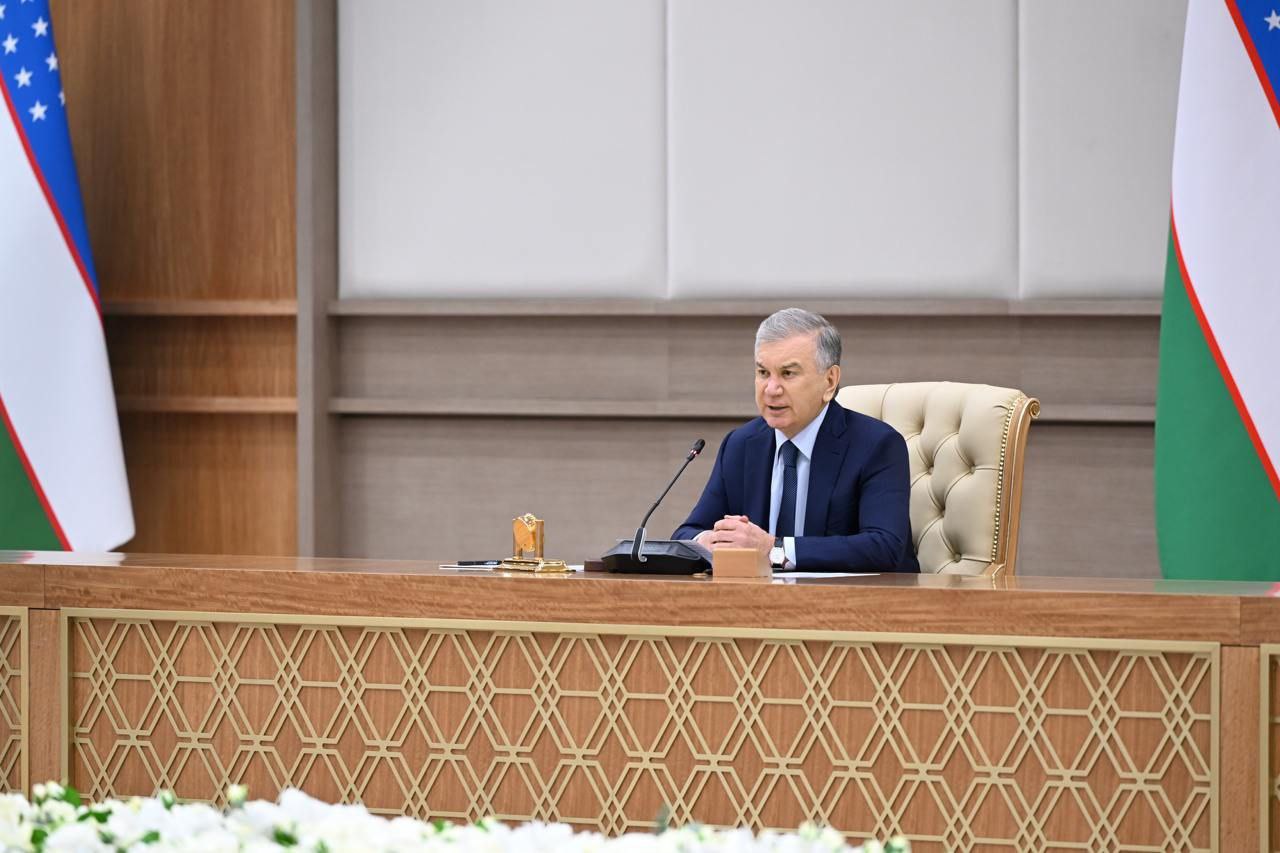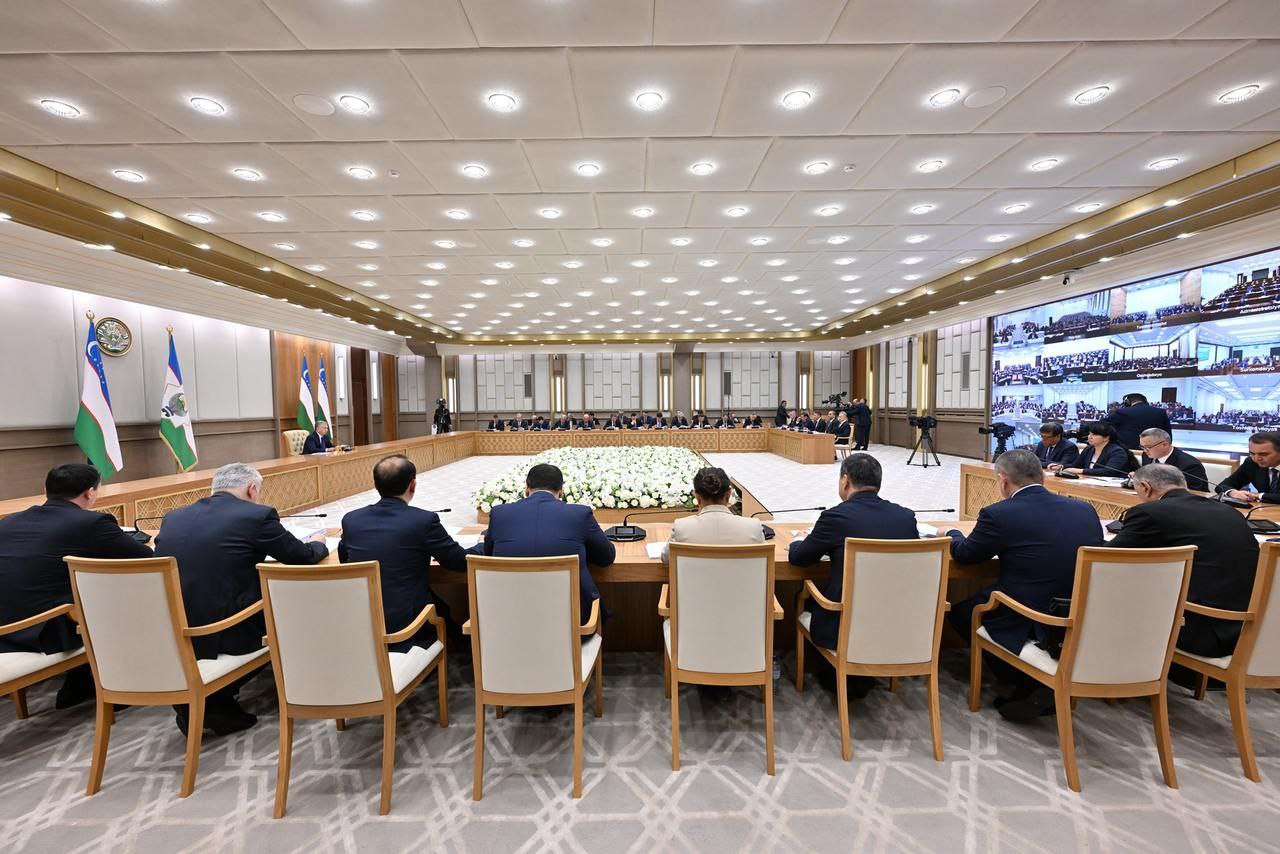High tariffs could slash international trade by $3.5 trillion and drive global inflation up by 7.5–8%, warns Uzbek President Shavkat Mirziyoyev, during video conference on mitigating the effects of global trade disruptions on April 18.

President Shavkat Mirziyoyev has raised concerns over the deepening global economic crisis, warning that rising trade restrictions and weakening international systems are putting Uzbekistan’s economic stability at serious risk. Head of the state highlighted the growing threat of protectionist policies.
“The world today is not the same as it was before. It is not about tariffs or their amount,” he said. “Institutions that once ensured stable relations and trust between countries are becoming ineffective.”
Mirziyoyev noted that disruptions in supply and value chains—especially in key sectors like textiles, electrical engineering, automotive, and food industries—could mirror those seen during the pandemic.

“The fact that international financial markets have lost $10 trillion in three to four days should be a strong signal for us,” he said.
He warned that Uzbekistan, which has increased its global trade presence, is particularly exposed. Countries that have imposed high tariffs may now pursue aggressive policies to push their own products into markets where Uzbek exports—especially yarn, fabrics, and household appliances—have been gaining ground.
Despite these threats, Uzbekistan has seen progress in expanding its export capacity. According to a Harvard University analysis, the country climbed 25 spots in the Economic Complexity Index over the past five years, moving from 105th to 80th place. Today, 162 Uzbek products are recognized as globally competitive. Export volumes have increased 2.2 times, with foreign trade turnover now equivalent to 57% of the country’s GDP.

“This is a very large number that shows how dependent our economy is on foreign markets,” the president stressed. “Those who say the current situation in the world does not affect us are making a big mistake.”
Mirziyoyev urged all sectors to take bold, proactive measures and rely on domestic strengths.
“We need to work twice as hard. Ministers, governors, and sector heads must draw up a clear plan and personally lead efforts in production and exports,” he stated.
The president expressed concern that many government leaders have failed to fully grasp the seriousness of the situation. Recent meetings with over 3,000 entrepreneurs revealed new and urgent challenges. Instead of providing solutions, some officials have become obstacles to business development. Mirziyoyev warned that strict measures will be taken against such individuals.

He also criticized the outdated standardization and certification system, which he said hampers entrepreneurs and enables corruption. Over 25,000 existing standards and 41 technical regulations are incompatible with international requirements. Of nearly 13,000 types of goods in Uzbekistan, 6,500 require mandatory certification—driving up costs and limiting export potential.
“When did ministers or governors last sit down with entrepreneurs to review which standards to cancel, which to update?” the president asked. “Unfortunately, there is no positive answer to this.”
He added that many laboratories in the country fail to meet international norms, and the current system allows certification bodies to both test products and oversee the market, creating conflicts of interest.
Follow Daryo's official Instagram and Twitter pages to keep current on world news.
Comments (0)